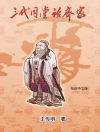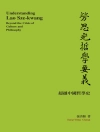This anthology, *Chinese Literature*, is a treasure trove of classical wisdom featuring a diverse array of philosophical and literary works from ancient China. The collection traverses a broad spectrum of literary styles, from the succinct aphorisms of Confucius to the expanded narrative journeys of Faxian. Unifying these diverse styles is a persistent exploration of moral and ethical themes that remain relevant today. The anthology includes profound dialogues, insightful proverbs, and historical narratives, each piece contributing to a rich tapestry of cultural and philosophical insight that invites readers to ponder humanity’s complex relationship with society, nature, and the self. The collection brings together the profound perspectives of Confucius, Mencius, and Faxian, titans of Chinese thought who laid the groundwork for centuries of philosophical inquiry. These authors, connected by their shared heritage yet distinguished by their unique contexts and influences, present a multifaceted examination of Confucian ideals, Buddhist reflections, and historical expositions. Their contributions collectively reflect the profound transformation and resilience within Chinese intellectual traditions and highlight how these ancient sages have shaped both historical and contemporary discourse. For scholars and enthusiasts alike, *Chinese Literature* offers a remarkable journey through the intellectual heritage of ancient China. This anthology allows readers to immerse themselves in the thoughts of some of history’s most influential figures, gaining insight into enduring cultural practices and philosophical debates. By engaging with the diverse perspectives presented in this volume, readers are not only educated on foundational Chinese philosophies but also invited to participate in a larger conversation that spans time and geography, reflecting the enduring value of these classical works.
Tentang Penulis
Confucius, born Kong Qiu in the Autumn and Spring period of ancient China, is the most influential Chinese philosopher whose teachings and philosophy have deeply influenced East Asian life and thought. His philosophy, often epitomized by the term Confucianism, emphasizes personal and governmental morality, correctness of social relationships, justice, kindness, and sincerity. Confucius’ ideas were compiled by his disciples and followers in the ‘Analects’, which served to preserve his philosophical doctrines. Although the ‘Chinese Literature’ is not a direct work of Confucius, his literary style and wisdom are embedded in the very fabric of classical Chinese literature. His discourse on ethics, education, and political philosophy is not confined to ancient texts but continues to resonate in modern scholarly discussions. Confucius’ emphasis on the importance of history and reflective learning forms an integral part of Chinese educational tradition, and his influence has spread across Asia into the philosophical frameworks of multiple cultures. Renowned for his quotable aphorisms, Confucius created a legacy that transcends time, his work echoing through millennia as a guiding beacon of wisdom.












